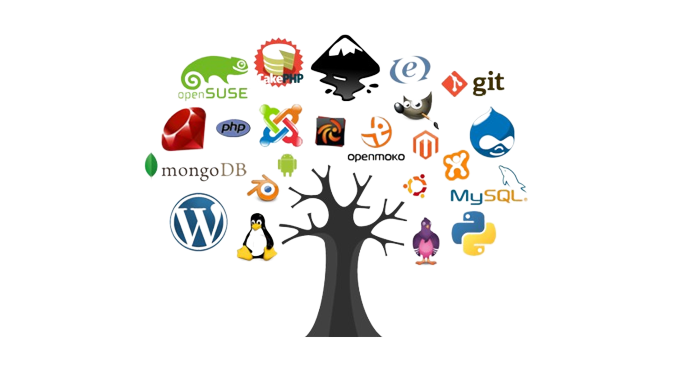What is Open Source?
"Open Source" is a term referring to something publicly
accessible for people to modify and use it. Its original context
was used in software programming to explain open-source
software. According to the
wikipedia, "Open source is source
code that is made freely available for
possible modification and redistribution. Products include
permission to use the source code,[1]
design documents,[2]
or content of the product".
Advantages of open-source software include promoting
collaborative participation, peer review programming,
cost-effectiveness, transparency, and building communities.
Examples of open source softwares:
GNU/Linux, Mozilla Firefox,
VLC media player,
Galaxy project.
Open Source Software: Basics
In line with the Open Source Initiative (OSI), common components of an Open Source software;
- It's stored in a public repository and shared publicly.
- It has a well-documented README file to explain what the software does.
- A contributing guide is available to guide people on how to contribute to the repository.
- It has a distribution license e.g MIT License.
- Well-defined issues in the software to help contributors fix bugs.
Resources
-
What-is-open-source-software, the history of OSS and the impact of Open Source Initiative in Open Source Community?
https://www.synopsys.com/glossary/what-is-open-source-software.html -
Advantages of Open Source, the difference between free software and open source?
https://i.workana.com/glossary/what-is-open-source/ -
Linux and Open Source , what’s the difference between free, closed, and open source software?
https://www.redhat.com/en/topics/open-source/what-is-open-source#linux-and-open-source
https://www.redhat.com/en/topics/open-source/what-is-open-source#free-vs-closed-vs-open-source -
Open Source Software Examples
https://www.designrush.com/software-development/trends/open-source-software-examples
References
The video is part of Open Life Sciences Programe and the subtitles is available in Arabic and English. The OLS program is for people interested in applying open principles in their work and becoming Open Science ambassadors in their communities. If you are re-using the video, please cite: Malvika Sharan, Emmy Tsang, Yo Yehudi, Bérénice Batut, Carlos Martinez, Helena Rasche, Hao Ye, Esther Plomp, Andre Maia Chagas, Georgia Aitkenhead, Suzanne lwai, Otis Smith, Emma Anne Harris, Thomas Mboa, Alex Holinski, Zulidyana Rusnalasari, Nelsy Mtsweni, Rowland Mosbergen, Iratxe Puebla, … Anelda van der Walt. (2021, September 19). Mini Talks/Videos about Open Science from OLS-3 Cohort (v.1.1). Zenodo. https://doi.org/10.5281/zenodo.5515763
Image Source https://medium.com/nitrr-open-source/open-source-101-6565a8c15bf

